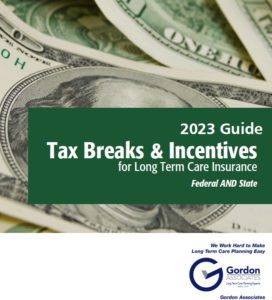From Gordon Associates – we are pleased to post this guest blog from Nadya Northrop with PharmD Insight, a consulting agency serving Chicago and the surrounding suburbs.
This blog covers an important topic we’re hearing more and more about. We hope you find it valuable.
It is important to accurately manage your medications at any age, but the effects of aging require more specialized maintenance or present crucial considerations. Here, we will address some common medication issues for older adults.
PolyPharmacy
Let’s start with polypharmacy. It is defined as taking five or more medications regularly or using medications that are harmful or not necessary.
Polypharmacy can lead to:
- Side effects
- Drug interactions
- Increased fall risk
- Increased medication costs (the more you take, the more you spend)
- Medication nonadherence
How to manage polypharmacy:
- Do not stop medications on your own!
- Ask your doctor if your medication is indeed necessary. If so, continue using it, but be aware of side effects that would warrant calling your doctor. If it’s not needed, ask about how you can stop taking it.
- Some medications can be stopped suddenly, but many medications need to be weaned off specifically over time.
- Your doctor would give you exact instructions on how to transition off the medication.
- If the medication is needed, ask a pharmacist about managing side effects & interactions.
- A home health nurse can help with administration of medications.
Risk of Falls. As mentioned above, polypharmacy can lead to fall risk. Falls are a significant problem for older adults because they can cause permanent disability or even death.
Drugs that increase fall risk:
- pain relievers (ex. Advil, Aleve, Motrin, ibuprofen)
- antihistamines (ex. Benadryl)
- sleep aids (ex. Unisom)
- anti-anxiety meds (ex. Valium, Xanax)
- acid reflux meds (ex. Prilosec, Nexium)
Drug side effects that can increase fall risk include:
- impaired balance or muscle control
- confusion
- dizziness
- blurred vision
How to manage fall risk:
- Some drugs can be substituted with a different drug that does not cause those side effects. Ask your doctor.
- Consider asking your doctor for physical therapy to help with fall prevention.
Not Adhering to Medications
Polypharmacy can also cause medication nonadherence, defined as not taking a medication correctly. Approximately 50% of patients suffer from medication nonadherence. Sadly, up to 25% of hospitalizations in the US are attributed to nonadherence, and it results in about 125,000 preventable deaths per year.
Examples of medication nonadherence:
- Not filling a prescription for a drug that is new for you
- Forgetting to take a drug or accidentally taking extra doses
- Intentionally taking more or less than was prescribed
- Stopping a drug without consulting the doctor
- Not administering the medication correctly (eye drops, inhalers, injections)
- Skipping doses to avoid side effects or to save money
How to manage medication nonadherence:
- Establish a schedule
- Use a pill organizer
- Keep the medication in view and in the same location
- Set reminders on a phone
- Use medication according to the directions
- Be honest with your doctor about side effects and ask if there is a different medicine that can treat your condition effectively
- If a drug is too expensive, ask your doctor if samples are available for a few months’ supply, if a different drug in the same family is an option, or if a generic drug would work. Also ask if the drug company (brand name drugs only) has a special program to provide the drug at low or no cost
Deprescribing Medications
Polypharmacy increases the risk of being nonadherent with medications because patients are overwhelmed by the many instructions for different medications. There is now a process in the field of pharmacy practice to reassess whether patients need to be on certain medications. This is called deprescribing. The website for healthcare professionals, www.deprescribing.org, helps doctors learn which medications may no longer be necessary and how to remove them from a patient’s drug regimen.
As we age, our bodies respond differently to medications; some drugs prescribed for younger adults are no longer appropriate for seniors. It is wise to ask your doctor to review your meds to confirm which are truly necessary. I often have clients who are taking drugs that are no longer safe for their age or are simply not necessary.
Benefits of deprescribing:
- Reduced morbidity and mortality
- Improved quality of life
- Decreased hospital admissions
- Reduced falls
- Improved cognitive status
- Decreased potential for medication nonadherence
Reconciling Medications
Lastly, many older adults will have their medications changed while they are in the hospital. It is crucial that the patient, their caregivers, and family members understand the new drug regimen. Medication reconciliation is the process of identifying and listing current medications and removing old drugs no longer in a patient’s regimen.
How to manage medication reconciliation:
- Understand which new drugs to take & how to take them
- Know what to expect (side effects and treatment of condition)
- Be sure that your new medications do not interact with current/established drugs
- Dispose of the discontinued drugs so that they are not accidentally taken
- Update your medication list to reflect any changes
- If you have questions, ask your doctor
This was a brief introduction to medication issues for older adults. Hopefully, you have found this information helpful. There is a need to raise awareness of common medication-related problems. You can be your own healthcare advocate. If you have questions, contact your doctor or pharmacist.
Nadya Northrop RPh., PharmD is a consultant pharmacist who assists older adults with their medications. Her website is https://pharmdinsight.com/


 To help determine if long-term care (LTC) insurance is right for you, we are offering a FREE informational guide. This is a comprehensive booklet that will answer many of your questions about tax breaks and incentives for LTCI for federal and state taxes.
To help determine if long-term care (LTC) insurance is right for you, we are offering a FREE informational guide. This is a comprehensive booklet that will answer many of your questions about tax breaks and incentives for LTCI for federal and state taxes. To help determine if long-term care (LTC) insurance is right for you, we are offering a FREE informational guide. This is a comprehensive booklet that will answer many of your questions about LTC and assist you with your health care planning.
To help determine if long-term care (LTC) insurance is right for you, we are offering a FREE informational guide. This is a comprehensive booklet that will answer many of your questions about LTC and assist you with your health care planning.